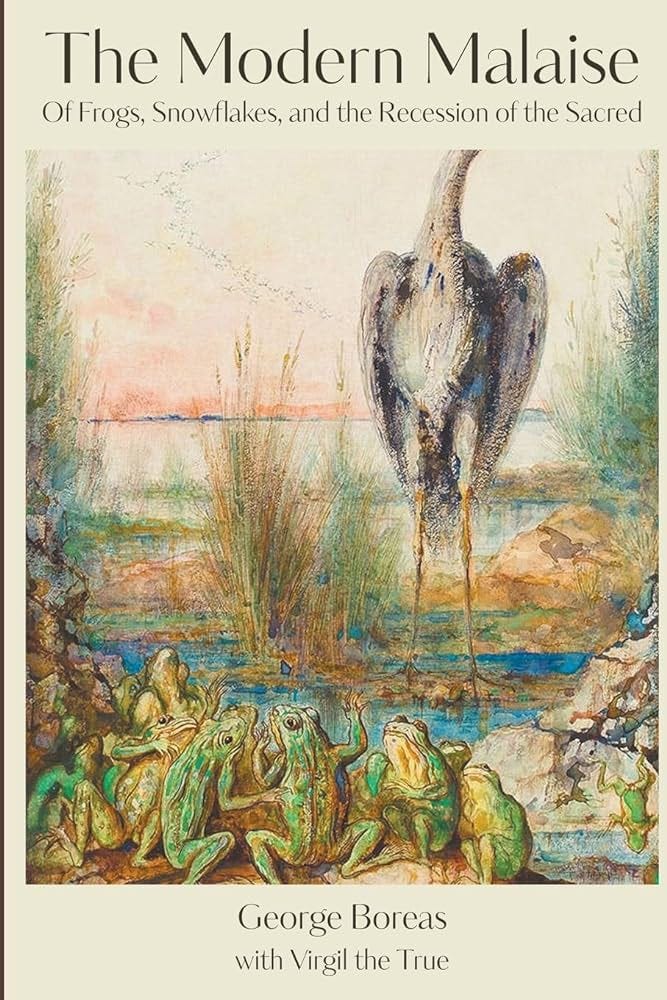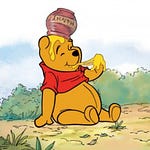Two Br*an Johnsons walk into a bar.
The first one (Brian with an "i") orders a glass of raw liver juice.
The other Bryan (with a "y") asks for a the blood of a vital young lad, straight up. The bartender, confused, tells them he's fresh out of both.
"Well then," says the first Brian, "I guess I'll just munch on this bull testicle ceviche I brought with me. Could I get a glass of seltzer water?”
The second Bryan, not to be outdone, pulls out a syringe. "Not to worry – I also prepared," he says, as he starts to inject blood from his own son into his arm.
This may sound like the setup to a very dark joke, but it's not far from reality. In the world of Content™, these two Br*ans – Brian Johnson, aka the "Liver King," and Bryan Johnson, the "Don't Die" biohacker – have become the embodiment of two extreme ideologies that are shaping our culture.
On the surface, they couldn't be more different. Liver King, with his meat-based diet and dark, tanned skin, represents the primal drive to return to our primal roots.
Bryan Johnson, on the other hand, with his research-intensive longevity protocol, translucent looking skin, and bizarre quest for immortality, appears to be reaching for a transhumanist future.
But dig a little deeper, and you'll find that they're two sides of the same coin – a coin that many content creators and e-influencers are frantically trying to flip in their favor.
The Modern Malaise
In his new treatise, The Modern Malaise, George Boreas provides a framework for trying to make sense of the absurdity of internet subcultures in the year 2024.
Boreas argues that in a world where traditional markers of identity and meaning have broken down, people are turning to extreme ideologies and personas in a desperate attempt to differentiate themselves.
"Nothing screams, 'I need a personality' more than people constantly talking about authenticity," he tells us.
This quest for “authenticity-through-extremity” is particularly evident in the content creation space, where standing out from the crowd is currency. But as Boreas points out: it's a self-defeating pursuit.
The more you try to be different, the more you end up conforming to a new set of norms. It's a paradox that René Girard – the late anthropologist and member of France’s prestigious Académie française – understood well. His “mimetic theory” posits that our desires are not our own; they are borrowed from others. We want what others want. In this case, “internet celebrity status” is an inherently scarce commodity. You can obtain it by apparently differentiating yourself, and yet the fundamental traits driving the differentiation – the obsessiveness, the narcisissm, and the becoming a caricature of oneself in pursuit of fame – make those seeking it more and more similar to each other.
In this light, the rise of figures like Liver King and Bryan “Don’t Die” Johnson starts to make a perverse kind of sense. They are the logical endpoints of a culture that valorizes the extreme, the polarized, and the attention-grabbing. They are what happens when the pursuit of authenticity becomes a competitive sport, and the only way to win is to push the boundaries further and further.
Navigating the Landscape of Extremes
But where does that leave the rest of us? How can we, as content creators and consumers, navigate this landscape of extremes?
Entrepreneur and investor Peter Thiel, himself a student of Girard, offers some insight. Thiel has long been interested in the question of how to build something novel in a world where mindless imitation and conformity are the norm.
In his 2014 WSJ essay "Competition is for Losers," he argues that the key to building something truly innovative is to escape competition altogether. Instead of trying to beat others at their own game, the most successful founders create a game of their own. They find a niche – an undiscovered value proposition – and they build a monopoly around it.
For content creators, this means carving out our own distinct space, focusing on our unique strengths and perspectives, and resisting the temptation to simply chase the latest trends or imitate the most popular influencers.
However, in a world of mimetic desire and constant comparison, it's all too easy to fall into the trap of defining ourselves against others, even as we strive to be different.
This is where Boreas' concept of "full-hearted imitation" comes in. Instead of trying to be original, per se, he suggests we should find multiple models of excellence and imitate them with all our heart. Not to become pale copies, but to learn from their example, to absorb their wisdom, and to let it inspire us to create something uniquely our own.
The Founder's Dilemma for Content Creators
As content creators, we face a unique version of what Thiel calls the "founder's dilemma": the challenge of creating something new and valuable without getting stuck in the "mimetic trap." We may not be building billion-dollar companies, but we are building something that will hopefully be of sufficient value to others that we can make a living from it ourselves. And, we wish to do so without becoming cartoon character versions of ourselves or the "models" we are trying to imitate.
This is the path that the most authentic and innovative content creators have always followed.
Take Steve Jobs, for instance. As Boreas points out, Jobs was fascinated by Japanese design. He didn't try to create something entirely new from scratch. Instead, he immersed himself in the aesthetics and philosophy of Japanese design, absorbing its lessons and letting them infuse his own work.
"He genuinely, with all his energies, imitated what he loved," Boreas writes. "And through that fullhearted imitation of what he loved, his unique authentic personality could not help but come out."
Full-hearted imitation is not about copying surface-level details or trying to become someone else. It's about diving deep into the models of excellence that inspire us, understanding what makes them tick, and then using that understanding to fuel our own unique creations.
Authenticity Through Excellence
Let’s not get carried away with talk of "being ourselves" or "unapologetic authenticity." The more we obsess over these ideas, the more elusive they become. Authenticity is not something we can claim or perform; it's something that emerges from the full-hearted pursuit of excellence.
Stop trying so hard to be "authentic," and start trying harder to be good. Find the models of excellence that inspire you, and imitate them full-heartedly. Do the work of mastering your craft, serving your audience, and building something of value, trusting that your authenticity will shine through – not as a performance or a gimmick, but as the natural outgrowth of a life well-lived and a job well-done.
Buy George’s book and follow him on X // Substack:
Read more:
#007 - Forget Unicorns, Embrace the Mule
Silicon Valley has been conditioned to admire the unicorn - that rare and magical creature that achieves a billion-dollar valuation in record time. We celebrate the founders of these companies for their stratospheric visions, their massive funding rounds, and their unstoppable growth. But what if we've been chasing the wrong animal?
















Share this post